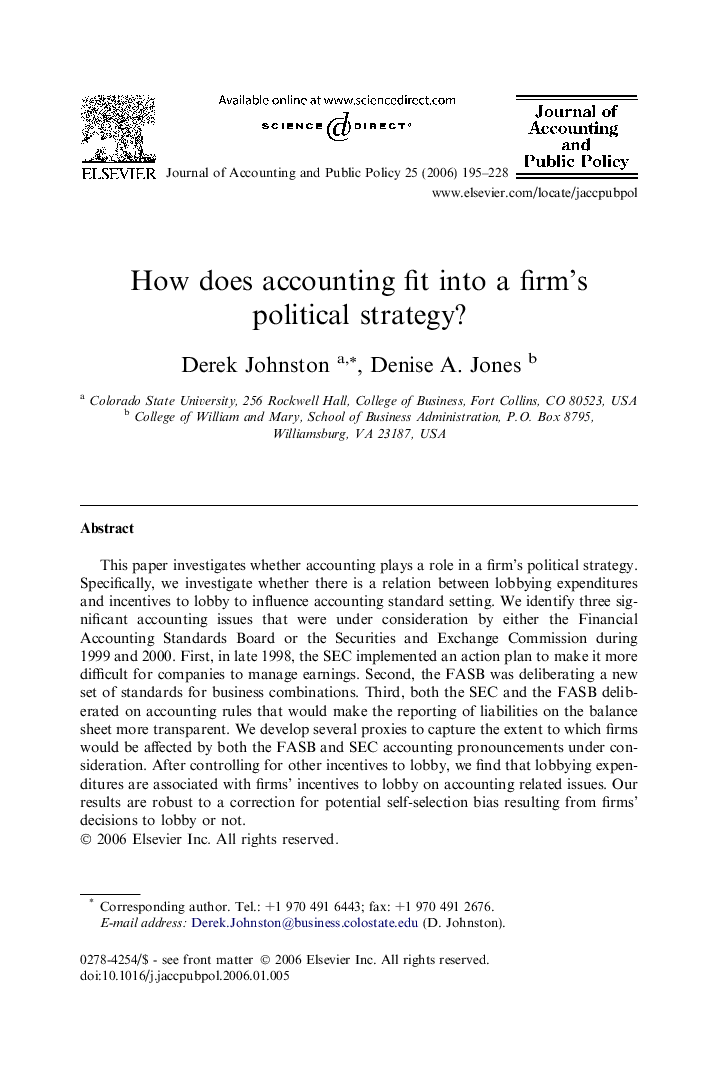| Article ID | Journal | Published Year | Pages | File Type |
|---|---|---|---|---|
| 1006099 | Journal of Accounting and Public Policy | 2006 | 34 Pages |
This paper investigates whether accounting plays a role in a firm’s political strategy. Specifically, we investigate whether there is a relation between lobbying expenditures and incentives to lobby to influence accounting standard setting. We identify three significant accounting issues that were under consideration by either the Financial Accounting Standards Board or the Securities and Exchange Commission during 1999 and 2000. First, in late 1998, the SEC implemented an action plan to make it more difficult for companies to manage earnings. Second, the FASB was deliberating a new set of standards for business combinations. Third, both the SEC and the FASB deliberated on accounting rules that would make the reporting of liabilities on the balance sheet more transparent. We develop several proxies to capture the extent to which firms would be affected by both the FASB and SEC accounting pronouncements under consideration. After controlling for other incentives to lobby, we find that lobbying expenditures are associated with firms’ incentives to lobby on accounting related issues. Our results are robust to a correction for potential self-selection bias resulting from firms’ decisions to lobby or not.
